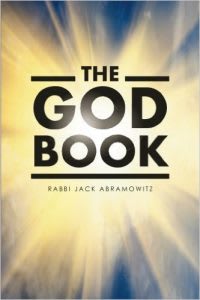2.15 How Prophecy is Achieved
Sources refer to the Ramchal's Derech Hashem.
-----------------------------------------
A novice prophet may not have as clear a revelation and he may contribute some elements from his own imagination but when he achieves full prophecy, his enlightenment will be clear and unambiguous. Through this, he will understand the level that he has achieved and that it is God Himself from Whom he is receiving this enlightenment. [III, 4.1] A prophet does not achieve this high level spontaneously; he has to work towards it by degrees.
A prophet started as an apprentice, just as those in other fields do. Tanach refers to these students as “sons of the prophets” (I Kings 20:35, II Kings 2:3, et al.). [III, 4.2] It was also possible for God to address an untrained person, who then might not even understand that he was experiencing prophecy, at least at first. This is what happened in the case of Shmuel (Samuel). He was not exposed to full prophecy at the outset, but to a voice. At first he mistook this for a normal human voice but the fullness of prophecy was ultimately granted to him (see I Samuel chapter 3). [III, 4.3]
To train for prophecy, one had to prepare through a number of different disciplines, including various meditations and mastery of the holy Names. The single most indispensable qualification, however, was the candidate’s proximity to God. In order to achieve the necessary nearness, apprentice prophets would work on self-improvement and perfecting their deeds. Even after the student starts to experience the initial forms of prophecy, he would still be guided by his teacher, an experienced prophet, in further growth and development until he reached the level of full prophecy. [III, 4.4]
Even having achieved this, all prophets’ experiences were not the same. Some prophets prophesized many times over the course of their careers; others only once or twice. Similarly, the degree of enlightenment they received via prophecy would vary based on the prophet’s personal greatness. What they all had in common was that they all recognized the connection to God that was the source of their enlightenment. [III, 4.5]
It was possible – though not necessarily the case – that God might dispatch a prophet on a mission. This was not an inherent part of being a prophet, which was about getting close to God. Being a prophet did not necessitate being given a message to deliver to another person. Nevertheless, many prophets were given messages to deliver. Sometimes these messengers were well-known as experienced prophets, while others were at the start of their careers. It was therefore possible for inexperienced prophets to make mistakes in carrying out their missions. This is what happened with the unnamed “man of God” who was punished for being tricked into not abiding by his own prophecy (I Kings chapter 13). [III, 4.6]
Another possibility is that the full meaning of a prophecy might not be revealed to a prophet. For example, God had told Jonah to prophesize that the city of Nineveh would be “overturned” (Jonah 3:4). The prophet assumed that this meant the city would be destroyed but, because they repented, it meant that the city “turned over” from evil to goodness. We see that the prophecy contains both meanings because, while God sometimes does annul harsh decrees, He always informs a prophet that He is doing so. Since He never revoked the decree, it is implicit that He fulfilled it according to its second possible meaning. [III, 4.7]
There are two parts to a prophecy: the content of the message and the words used to convey it. In some cases, a prophecy required that particular words be used; other times, a prophet was free to use any phraseology that he liked. Even when particular wording had to be used, the choice of words reflected such factors as the time and place in which the prophet did, his social standing, and his own manner of speech. (In other words, God gave a prophet words appropriate for the messenger.) Sometimes a prophets was instructed to accompany the prophecy with some action, such as Jeremiah wearing a linen loincloth (Jeremiah 13) and Ezekiel drawing a map of Jerusalem on a brick (Ezekiel 4). Such actions serve to prime the spiritual forces and poise them to carry out the prophecy. [III, 4.8]
The God Book – now available from OU Press!

